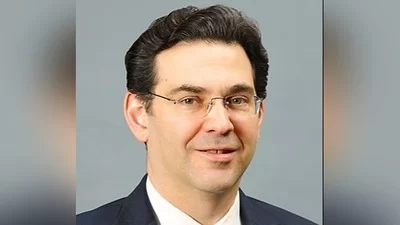Congresswoman Kat Cammack | Kat Cammack Official Website
Congresswoman Kat Cammack | Kat Cammack Official Website
Americans are facing the prospect of another surge in health-care costs, with prices expected to increase by an average of 6.5 percent in 2024. Families will bear the brunt of these rising costs through higher premiums, elevated deductibles, and out-of-pocket expenses. This situation is particularly challenging for lower-income families, who often have to sacrifice other necessities to afford health insurance.
However, there is hope on the horizon. Congressman Greg Steube and Congresswoman Kat Cammack have introduced the ACCESS Act, a transformative proposal aimed at empowering approximately 5 million lower-income Americans to take control of their health-care finances. The key component of this legislation is the creation of a new "HSA option" that allows individuals enrolled in subsidized health-care plans to redirect a portion of their subsidies into a tax-advantaged health savings account (HSA).
HSAs have been beneficial for millions of Americans since their inception in 2003. Currently, there are an estimated 35 million HSA accounts with a total of $116 billion in assets available for medical expenses. These accounts provide individuals with the flexibility to use tax-advantaged funds to pay for out-of-pocket medical expenses for themselves and their dependents.
The National Bureau of Economic Research has found that consumer-directed health plans, such as HSAs, can effectively reduce health-care costs and act as a safeguard against surprise billing. However, the current rules only allow Americans to have an HSA if they are enrolled in a "high-deductible health plan" that meets specific federal criteria. This restricts approximately 90 percent of Americans from accessing the benefits of an HSA.
To address this issue, the ACCESS Act aims to broaden access to HSAs, which is crucial for any health-care reform that prioritizes personalized options for Americans. The majority of voters agree that any American should be able to open an HSA. By eliminating this key barrier, the ACCESS Act would enable lower-income patients to meet their families' medical needs more effectively.
Contrary to popular belief, HSAs are not just for the wealthy and healthy. They are particularly advantageous for lower-income and middle-class families, as well as individuals with chronic medical conditions. By using a tax-free HSA, these individuals can enjoy a 10 to 40 percent discount on every out-of-pocket medical purchase they make. HSAs can cover co-pays, deductibles, and other qualified medical or dental expenses that may not be covered by insurance.
One of the challenges for lower-income individuals is funding an HSA. However, the ACCESS Act addresses this issue by shifting existing subsidies from insurance middlemen to lower-income Americans. This redistribution of subsidies would also make federal insurance subsidies more efficient, saving taxpayers an estimated $30 billion, according to the nonpartisan Congressional Budget Office.
Research has shown that when individuals have control over their health care, it leads to lower costs and expanded coverage. HSAs foster cost savings and promote price consciousness among patients, which encourages health-care providers to be more transparent about prices. This transparency creates competition that ultimately leads to lower prices and higher quality care.
The ACCESS Act has the potential to be a game-changer for millions of American families. While the reform currently applies only to individuals enrolled in ACA exchange plans, its benefits can extend beyond the open-enrollment period. HSAs never expire, allowing individuals to carry their funds with them even after transitioning from an exchange plan. This ensures that health-care dollars are put to the best possible use.
Lower-income Americans should not be confined to a one-size-fits-all health-care program. They deserve the power to choose the health care that best suits their needs. The ACCESS Act takes a significant step toward giving them that power and transforming our nation's health-care system for the better.
In conclusion, the rising costs of health care in the United States necessitate personalized health-care reform. The ACCESS Act, introduced by Congressman Greg Steube and Congresswoman Kat Cammack, offers a transformative solution by expanding access to tax-advantaged health savings accounts (HSAs) for lower-income Americans. HSAs have proven to be beneficial in reducing health-care costs and providing individuals with more control over their medical expenses. By eliminating barriers to opening an HSA, the ACCESS Act empowers individuals to make personalized choices about their health care and ensures that health-care dollars are used efficiently. This legislation has the potential to improve the lives of millions of American families and create a more equitable health-care system.



 Alerts Sign-up
Alerts Sign-up